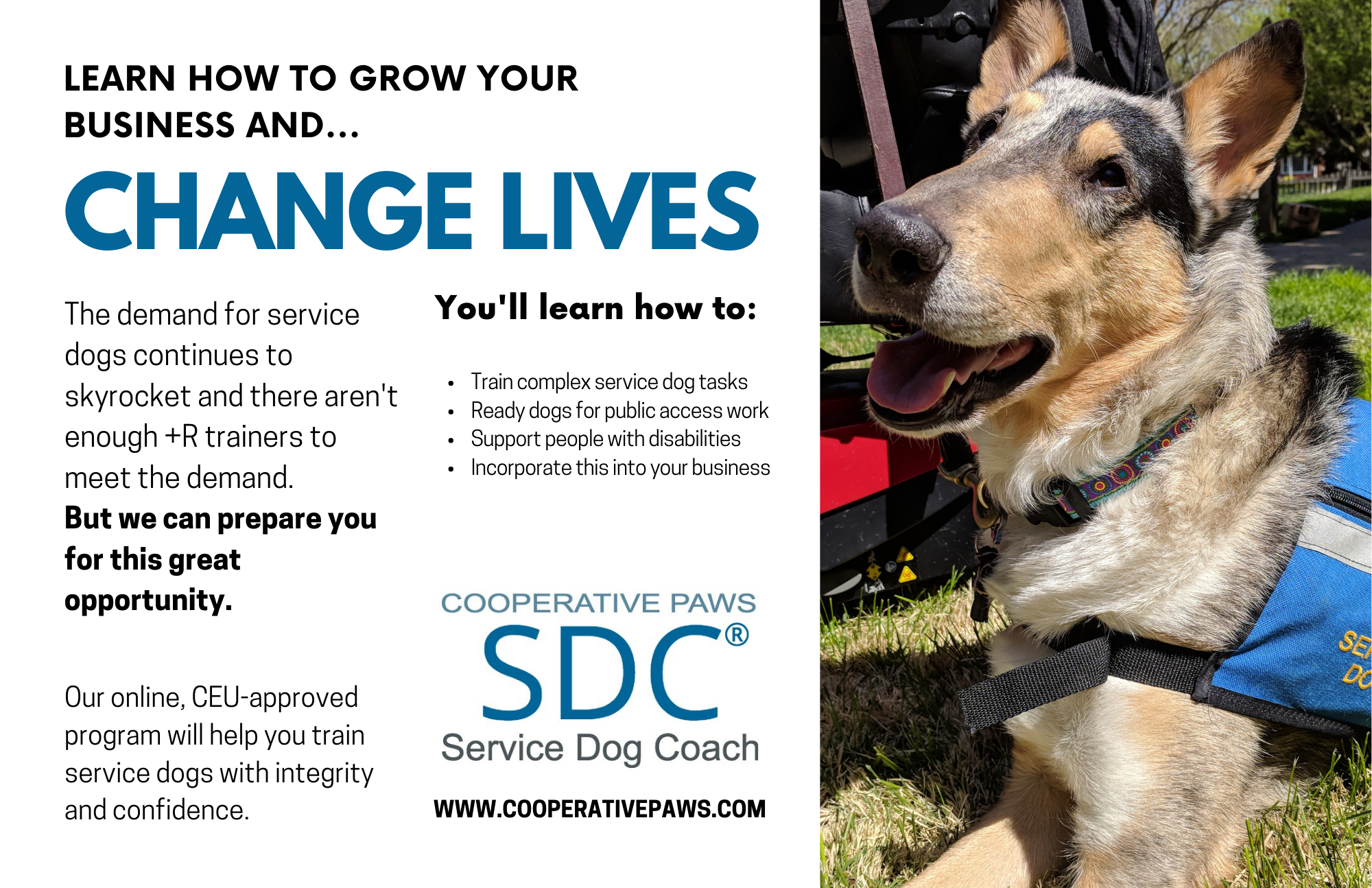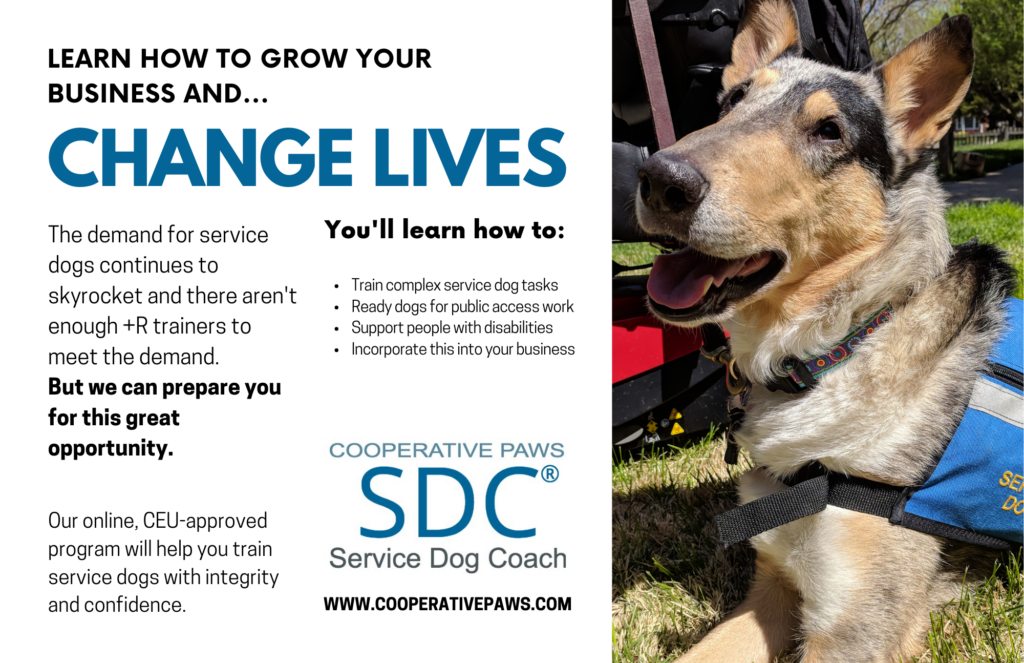Barks
Editor’s Picks
Hoof Care Options for Fearful Equids
by Michelle Martiya When people adopt or rescue fearful and feral equids, one of the most pressing issues the new owners face is the need to trim their feet. These animals often come with feet that are too long, which can be painful and cause long-term musculoskeletal problems. Much like dogs accepting nail trims, hoof trims can be one of the most challenging procedures for an equid to accept, and the need for care will frequently happen before training for this procedure is complete. Fortunately, there are a few things… Continued
Latest Articles
What’s Wrong With No Kill?
by Pat Miller Those who know me know that I abhor the entire deceptive, unethical, abusive “no-kill” movement. When I first spoke out against no kill at conferences 20-plus years ago, I was greeted by a roomful of puzzled looks and verbal resistance. Today, I get wild applause. Our industry has come to understand how damaging the so-called no-kill movement actually is. Imagine a world where no dog is euthanized for homelessness: more homes than dogs; waiting lists at dog adoption sources; potential adopters anxiously awaiting the next available canine.… Continued
Pet Training and Behavior Consulting: Knowledge Versus Performance
Knowledge and performance are distinct yet interconnected concepts. Knowledge refers to the understanding and awareness of facts and ideas, while performance is the practical application of that knowledge. Dog training hinges on both knowledge and performance. These concepts are different, but both should be assessed before a professional can become an accredited or licensed dog trainer. Can you imagine other industries certifying or licensing professionals without evidence of both knowledge and performance? Veterinary medicine, surgery, nursing, and most trades require performance competency. How can we overlook the performance factor and… Continued
Five Ways the Power of Play Will Transform Your Dog Training Business
Want to know the secret to happier clients, better-trained dogs, and a thriving dog training business? Or how to encourage your owners to actually do the work and put your training into practice? The answer is simpler than you might think—it’s play! Science shows that play doesn’t just make training more enjoyable. It actively enhances learning, strengthens bonds, and builds confidence in both dogs and their owners. At Tug-E-Nuff, we’ve seen firsthand how incorporating interactive play into training supercharges results and makes people and dogs happy! Let’s explore five compelling ways… Continued
Balancing Health and Business
In this article, the experts at dogbiz share tips for dog trainers who may be struggling with balancing their health and running their dog training business. Ask dogbiz Q: Hi dogbiz, I’ve been struggling to find the right balance between my health and running my dog training business. I’ve had some health issues that can flare up from time to time, and I worry about letting my clients down when I need to cancel appointments. I want to be reliable, but I also need to take care of myself. How… Continued
Barks
Topics
Archives

Block
Pet Professional Guild does not endorse or guarantee any products, services or vendors mentioned in BARKS, nor can it be responsible for problems with vendors or their products and services. Pet Professional Guild reserves the right to reject, at its discretion, any advertising.
To be in any way affiliated with the Pet Professional Guild, all members, partners and advertisers must agree to the Pet Professional Guild Guiding Principles.
Please use the search function at the top right corner of the page to search BARKS articles from 2014 to the present.
Published by the Pet Professional Guild
2609 N Forest Ridge Blvd #179 Hernando, FL 34442, USA Tel: +1-844-462-6473
Pet Professional Guild
BARKS on Facebook
Editor Paula Garber
Images
© Can Stock Photo (unless otherwise credited; uncredited images belong to Pet Professional Guild)



